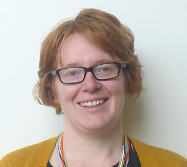Nelson Marlborough > GPs / Accident & Urgent Medical Care > Nelson Bays Primary Health >
Golden Bay Community Health Centre
General Practice (GP) Service
URGENT MEDICAL & AFTER-HOURS CARE
URGENT CARE
ANY TIME IN AN EMERGENCY, DIAL 111 (Life threatening only)
If urgent care is needed afterhours or on public holidays, please call us on
(03) 525 0060 day or night and listen to the recorded instructions.
ROUTINE MEDICAL CARE
If you need a GP appointment, call us on (03) 525 0060
Today
8:30 AM to 5:00 PM.
Description
Golden Bay Community Health is an Integrated Family Health Centre in the remote area of Golden Bay.
Golden Bay Community Health offers a range of other on-site services, including Aged Residential Care, Community Hospital, District Nursing, Midwives, Physiotherapy and Occupational Therapy.
Our on-site Medical Centre provides high-quality general practices services to enrolled patients. On Saturdays and Public Holidays, we are open for urgent drop-in clinics, no appointment required. See below for more surgery services and staff.
Collingwood Clinic is our Nurse/GP/Nurse Practitioner clinic on Lewis Street, please call reception 035250060 to book an appointment.
Staff
Meet our full practice team here.
Alongside our General Practitioners below, GBCH has two very experienced nurse practitioners, and they function the same as our doctors. They both have enrolled patients and participate on our 24/7 on-call system and can prescribe medications.
- Megan Collie - Nurse Practitioner
- Gina Mills - Nurse Practitioner
Doctors
-

Dr Rachael Cowie
General Practitioner - Vocationally Registered
-

Dr Loren McCuskey
General Practitioner - Vocationally Registered
-

Dr Charlotte Vigneron
General Practitioner
-

Dr Neil Whittaker
General Practitioner - Vocationally Registered
-

Dr Morgana Woolhouse-Williams
General Practitioner - Vocationally Registered
How do I access this service?
Enrolled patients, Casual (not enrolled) patients, Make an appointment, Contact us, Website / App
Enrolling new patients
Fees
Enrolled Patient Fees
| Age Range | Without CSC | With CSC |
|---|---|---|
| Under 6 years | Free | Free |
| 6 to 13 years | Free | Free |
| 14 to 17 years | $35.00 | $13.50 |
| 18 to 24 years | $53.50 | $20.00 |
| 25 to 44 years | $53.50 | $20.00 |
| 45 to 64 years | $53.50 | $20.00 |
| 65+ years | $51.50 | $20.00 |
Note: Saturday and Public Holidays we are open for urgent drop-in clinics. For these appointments, there is an extra After Hours Clinic Fee fee added, of $40.00 for registered adult patients, less for children and 65+. For children under thirteen, after hours care is free.
Hours
8:30 AM to 5:00 PM.
| Mon – Fri | 8:30 AM – 5:00 PM |
|---|
After Hours: Please refer patient to Ka Ora
Public Holidays: Closed Waitangi Day (6 Feb), Good Friday (3 Apr), Easter Sunday (5 Apr), Easter Monday (6 Apr), ANZAC Day (observed) (27 Apr), King's Birthday (1 Jun), Matariki (10 Jul), Labour Day (26 Oct), Nelson Anniversary (1 Feb).
Services Provided
Our GP practice has team members who work alongside your doctor and nurses to provide you with a range of mental wellbeing supports and tools. These team members may include Health Improvement Practitioners (HIPs), Health Coaches and Support Workers. View the following link for more information about wellbeing support in general practice and the national Access & Choice programme.
Our GP practice has team members who work alongside your doctor and nurses to provide you with a range of mental wellbeing supports and tools. These team members may include Health Improvement Practitioners (HIPs), Health Coaches and Support Workers. View the following link for more information about wellbeing support in general practice and the national Access & Choice programme.
Our GP practice has team members who work alongside your doctor and nurses to provide you with a range of mental wellbeing supports and tools. These team members may include Health Improvement Practitioners (HIPs), Health Coaches and Support Workers.
View the following link for more information about wellbeing support in general practice and the national Access & Choice programme.
All women and people with a cervix aged 25 – 69 who have ever had intimate skin-to-skin contact or been sexually active should have regular cervical screening. This includes women who have been immunised against HPV. Together, regular screening and HPV immunisation provide the best protection against cervical cancer. There are now more options for how you have cervical screening done: a simple vaginal swab test for HPV, either done yourself or with help from a healthcare professional a cervical sample taken by a healthcare professional (used to be known as a smear test). Talk with your healthcare provider to decide which option is best for you. If HPV is found, you may need to have a follow-up test or be referred directly for colposcopy. If you’ve not yet had HPV testing, you should be screened 3 years after your last test (or 1 year if immune deficient). Once you have had an HPV test, and providing HPV is not found, your next screening will be in 5 years (or 3 years if immune deficient). For more information: Cervical screening | Time to Screen - National Screening Unit
All women and people with a cervix aged 25 – 69 who have ever had intimate skin-to-skin contact or been sexually active should have regular cervical screening. This includes women who have been immunised against HPV. Together, regular screening and HPV immunisation provide the best protection against cervical cancer. There are now more options for how you have cervical screening done: a simple vaginal swab test for HPV, either done yourself or with help from a healthcare professional a cervical sample taken by a healthcare professional (used to be known as a smear test). Talk with your healthcare provider to decide which option is best for you. If HPV is found, you may need to have a follow-up test or be referred directly for colposcopy. If you’ve not yet had HPV testing, you should be screened 3 years after your last test (or 1 year if immune deficient). Once you have had an HPV test, and providing HPV is not found, your next screening will be in 5 years (or 3 years if immune deficient). For more information: Cervical screening | Time to Screen - National Screening Unit
All women and people with a cervix aged 25 – 69 who have ever had intimate skin-to-skin contact or been sexually active should have regular cervical screening. This includes women who have been immunised against HPV. Together, regular screening and HPV immunisation provide the best protection against cervical cancer.
There are now more options for how you have cervical screening done:
- a simple vaginal swab test for HPV, either done yourself or with help from a healthcare professional
- a cervical sample taken by a healthcare professional (used to be known as a smear test).
Talk with your healthcare provider to decide which option is best for you.
If HPV is found, you may need to have a follow-up test or be referred directly for colposcopy.
If you’ve not yet had HPV testing, you should be screened 3 years after your last test (or 1 year if immune deficient). Once you have had an HPV test, and providing HPV is not found, your next screening will be in 5 years (or 3 years if immune deficient).
For more information: Cervical screening | Time to Screen - National Screening Unit
Immunisation is the safest and most effective way to provide protection for you and your tamariki’s health. For more information view the NZ immunisation schedule.
Immunisation is the safest and most effective way to provide protection for you and your tamariki’s health. For more information view the NZ immunisation schedule.
- Pregnancy vaccinations
- Childhood immunisation programme
- 45 year old vaccinations
- Adult flu vaccine
- Child flu vaccine
- Diphtheria / Tetanus / Pertussis (whooping cough) vaccine
- Measles / Mumps / Rubella (MMR) vaccine
- Meningococcal vaccine
- COVID-19 vaccination and boosters
- Catch-up missed vaccinations
- 65 year old vaccinations
- Human Papillomavirus (HPV) vaccine
- Respiratory syncytial virus (RSV) vaccine
- Shingles vaccine
- Travel vaccinations
- Privately funded vaccinations
Immunisation is the safest and most effective way to provide protection for you and your tamariki’s health. For more information view the NZ immunisation schedule.
LARC methods are very effective at preventing unplanned pregnancy and are “fit and forget” forms of contraception – you don’t need to remember them every day or every month. LARC methods: Intrauterine Contraceptive Devices (IUCD or IUD) are inserted through the cervix into a woman’s uterus. IUCDs may be either hormonal (Mirena® or Jaydess® ) or non-hormonal (copper IUCD). Jadelle® is a hormone-releasing implant that is inserted just under the skin of the upper arm. Depending on the type of device, it will need to be changed after between three and ten years. Read more about LARC methods here
LARC methods are very effective at preventing unplanned pregnancy and are “fit and forget” forms of contraception – you don’t need to remember them every day or every month. LARC methods: Intrauterine Contraceptive Devices (IUCD or IUD) are inserted through the cervix into a woman’s uterus. IUCDs may be either hormonal (Mirena® or Jaydess® ) or non-hormonal (copper IUCD). Jadelle® is a hormone-releasing implant that is inserted just under the skin of the upper arm. Depending on the type of device, it will need to be changed after between three and ten years. Read more about LARC methods here
- Free or subsidised contraception services (enquire for eligibility and details)
- IUD inserts
- Implant (Jadelle) inserts
- IUD removals
- Implant (Jadelle) removal
LARC methods are very effective at preventing unplanned pregnancy and are “fit and forget” forms of contraception – you don’t need to remember them every day or every month. LARC methods:
- Intrauterine Contraceptive Devices (IUCD or IUD) are inserted through the cervix into a woman’s uterus. IUCDs may be either hormonal (Mirena® or Jaydess® ) or non-hormonal (copper IUCD).
- Jadelle® is a hormone-releasing implant that is inserted just under the skin of the upper arm.
Depending on the type of device, it will need to be changed after between three and ten years.
Read more about LARC methods here
A patient portal is a secure online tool provided by GP practices that can allow convenient access to your health information as well as interaction with the practice e.g. booking appointments and requesting repeat prescriptions.
A patient portal is a secure online tool provided by GP practices that can allow convenient access to your health information as well as interaction with the practice e.g. booking appointments and requesting repeat prescriptions.
A patient portal is a secure online tool provided by GP practices that can allow convenient access to your health information as well as interaction with the practice e.g. booking appointments and requesting repeat prescriptions.
Each GP surgery or primary care practice will have its own procedure for repeat prescribing but the following rules are common to most, if not all. Patients who are well-known to the practice who have a stable condition like asthma, hypertension or diabetes could be allowed to get a repeat prescription for up to six months. Repeat prescriptions are never given to patients who are not known to the practice and there is probably a blanket ban on repeats for narcotics and other drugs that could be misused as doctors are expected to monitor these drugs carefully.
Each GP surgery or primary care practice will have its own procedure for repeat prescribing but the following rules are common to most, if not all. Patients who are well-known to the practice who have a stable condition like asthma, hypertension or diabetes could be allowed to get a repeat prescription for up to six months. Repeat prescriptions are never given to patients who are not known to the practice and there is probably a blanket ban on repeats for narcotics and other drugs that could be misused as doctors are expected to monitor these drugs carefully.
Each GP surgery or primary care practice will have its own procedure for repeat prescribing but the following rules are common to most, if not all. Patients who are well-known to the practice who have a stable condition like asthma, hypertension or diabetes could be allowed to get a repeat prescription for up to six months. Repeat prescriptions are never given to patients who are not known to the practice and there is probably a blanket ban on repeats for narcotics and other drugs that could be misused as doctors are expected to monitor these drugs carefully.
Sometimes your doctor needs to take a sample of blood or urine either to discover what is wrong with you or to measure something in your blood so that the right medication is given to you. These tests could be anything from blood sugar to a full blood count or a sample of tissue to test for cancer. While urine can generally be tested in the surgery, blood and other specimens are usually sent away for testing at a laboratory. Most results come back within 48 hours unless a very rare test is needed which has to go to a specialist lab further away when it might take a little longer.
Sometimes your doctor needs to take a sample of blood or urine either to discover what is wrong with you or to measure something in your blood so that the right medication is given to you. These tests could be anything from blood sugar to a full blood count or a sample of tissue to test for cancer. While urine can generally be tested in the surgery, blood and other specimens are usually sent away for testing at a laboratory. Most results come back within 48 hours unless a very rare test is needed which has to go to a specialist lab further away when it might take a little longer.
Sometimes your doctor needs to take a sample of blood or urine either to discover what is wrong with you or to measure something in your blood so that the right medication is given to you. These tests could be anything from blood sugar to a full blood count or a sample of tissue to test for cancer.
While urine can generally be tested in the surgery, blood and other specimens are usually sent away for testing at a laboratory. Most results come back within 48 hours unless a very rare test is needed which has to go to a specialist lab further away when it might take a little longer.
Health screening tests check for health conditions or early warning signs of disease.
Health screening tests check for health conditions or early warning signs of disease.
- Cervical screening
Health screening tests check for health conditions or early warning signs of disease.
Your GP's surgery is far more than a place to go when you are feeling unwell and needing a quick cure. The doctor who sees you has gone through an extensive medical training to equip her or him to help children and adults of all ages with a range of physical and emotional difficulties. GPs are at the centre of the healthcare hub and will be aware of services and expertise that are available locally and further-a-field. GPs are also aware of the link that stress and unhappy life events have on physical health so know when to suggest a talking therapy rather than medication.
Your GP's surgery is far more than a place to go when you are feeling unwell and needing a quick cure. The doctor who sees you has gone through an extensive medical training to equip her or him to help children and adults of all ages with a range of physical and emotional difficulties. GPs are at the centre of the healthcare hub and will be aware of services and expertise that are available locally and further-a-field. GPs are also aware of the link that stress and unhappy life events have on physical health so know when to suggest a talking therapy rather than medication.
Your GP's surgery is far more than a place to go when you are feeling unwell and needing a quick cure. The doctor who sees you has gone through an extensive medical training to equip her or him to help children and adults of all ages with a range of physical and emotional difficulties. GPs are at the centre of the healthcare hub and will be aware of services and expertise that are available locally and further-a-field. GPs are also aware of the link that stress and unhappy life events have on physical health so know when to suggest a talking therapy rather than medication.
Disability Assistance
Wheelchair access, Wheelchair accessible toilet, Mobility parking space, Quiet, low sensory environment, Assistance to move around, Support to make decisions, A longer appointment time, More space to move around
Online Booking URL
Website
Contact Details
10 Central Tākaka Road, Tākaka
Nelson Marlborough
8:30 AM to 5:00 PM.
-
Phone
(03) 525 0060
Healthlink EDI
goldbaym
Email
Website
10 Central Tākaka Road
Tākaka
Tasman 7142
Street Address
10 Central Tākaka Road
Tākaka
Tasman 7142
Postal Address
10 Central Tākaka Road
R.D.1
Tākaka
Golden Bay 7183
Was this page helpful?
This page was last updated at 9:39AM on February 24, 2026. This information is reviewed and edited by Golden Bay Community Health Centre.

